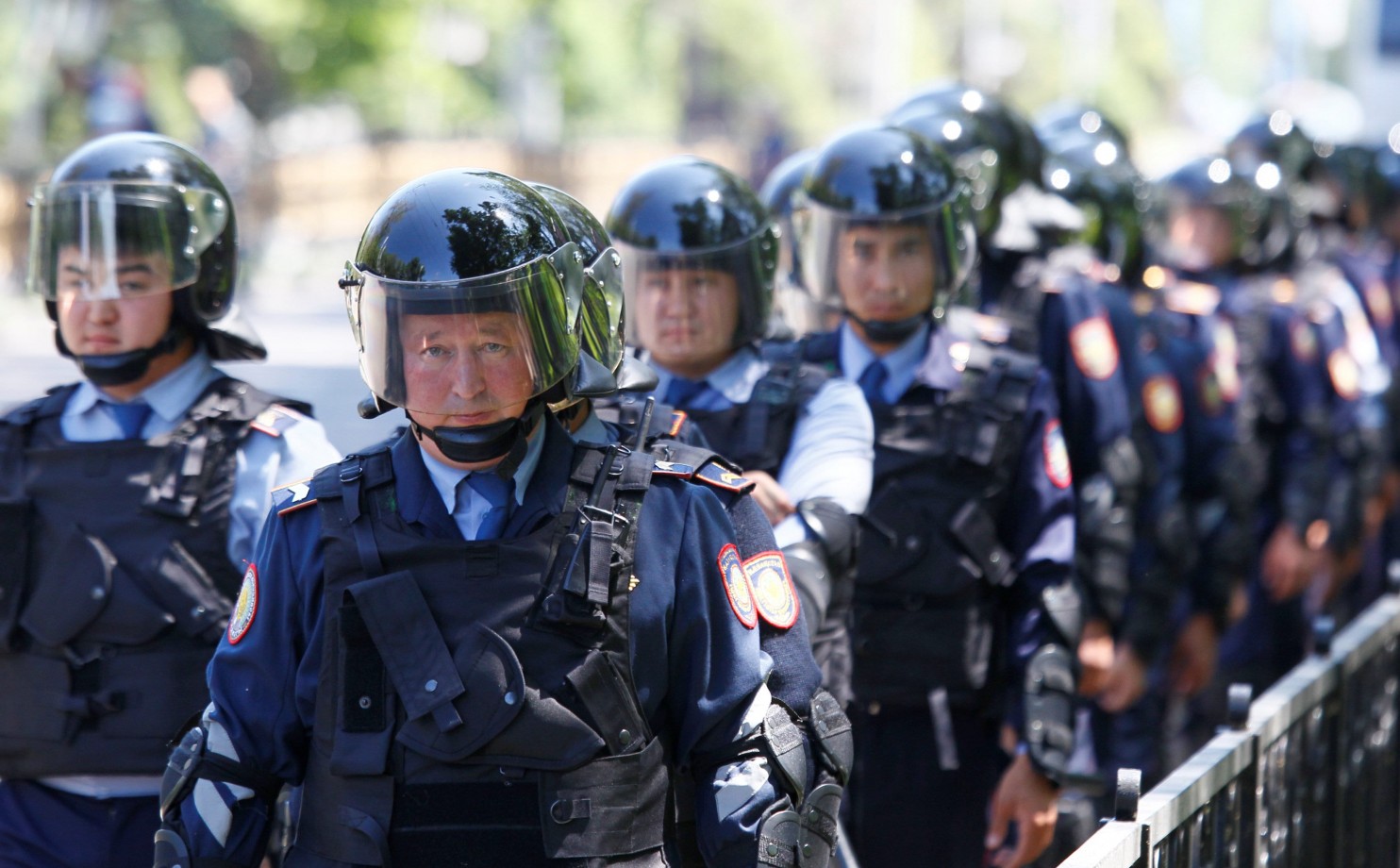Kazakhstan’s government is adamant about stopping the spread of extremist ideology within a country that is Central Asia’s most successful economy and one of its most ethnically diverse.
Earlier this week, officials in Astana highlighted national efforts to fight radical extremism when unveiling a new five-year plan by the National Security Committee that is designed to thwart terrorist agendas in the region.
According to the documents released, which are open for public discussion until February 6, between 2013 and 2017 the government prohibited 440 citizens previously recruited by militants from leaving Kazakhstan and traveling to war zones in the Middle East or Afghanistan.
“At the same time, 125 persons, who have already joined international terrorist organizations, were brought back or returned by themselves, while 57 of them were brought to criminal liability,” read the text released earlier this week.
In addition, Kazakhstan’s security forces have managed to prevent almost 30 terrorist attacks over the past five years, according to the document.
To fight against religious extremism and destructive religious movements, the plan calls for monitoring mass media and web resources, including social networks, in order to identify and neutralize terrorist and extremist propaganda. It also calls for strengthening Kazakhstan’s borders and ban the importation of prohibited materials.
According to reports in AKIpress news agency, Astana plans on spending more than 226 billion tenge ($700 million) to fight extremism and terrorism over the next five years.
Astana is also set to back initiatives aimed at dissemination of explanatory and counterpropaganda materials through news portals and social networks, including famous bloggers, and will work to form resistant immunity to radical ideology and zero tolerance for radical manifestations in the religious sphere.
Kazakhstan’s central security body believes that despite measures taken thus far, the problem of participation of Kazakhstan’s citizens in terrorist activities abroad continues to remain relevant.
Dozens of ethnic Kazakhstanis have reportedly joined Islamic State (IS, or “ISIS”), which remains active in the Middle East. In January 2015, a child soldier who claimed to have come from Kazakhstan was seen executing two alleged Russian spies in a video released by the group. Jihadist promotional materials distributed in November 2016 stressed that IS actively uses fighters from Central Asia as shahid, meaning “martyr” in Arabic, or suicide bombers.
Along with threats from abroad, Kazakhstan is also experiencing difficulties within the country. Security in Central Asia is thought to be volatile, due to the presence of various extremist groups, while territorial proximity to Afghanistan is considered a potentially destabilizing factor.
In June 2016, a terrorist attack in the Kazakhstani city of Aktobe, in the northwest of the country, resulted in 7 deaths and more than 37 injured. Just one month later, the attack was followed by a deadly assault in Almaty, Kazakhstan’s former capital city. As a result, three policemen and one civilian were assassinated. Suspect Ruslan Kulikbayev, age 26, was said to be close to Salafists, an ultra-conservative Sunni Muslim school of thought. There are said to be about 15,000 Salafists in Kazakhstan.







 President Aliyev emphasized the critical role of the North-South Transport Corridor in fostering transport cooperation between Azerbaijan and Russi...
President Aliyev emphasized the critical role of the North-South Transport Corridor in fostering transport cooperation between Azerbaijan and Russi...
 Armenian sappers commenced on Monday mine-clearance operations in the territories adjacent to the Saint Mary Church in village of Voskepar (Armenia...
Armenian sappers commenced on Monday mine-clearance operations in the territories adjacent to the Saint Mary Church in village of Voskepar (Armenia...
 The Mine Action Agency of Azerbaijan (ANAMA) reported on Thursday the discovery of a significant amount of explosives in the Khojavand district of ...
The Mine Action Agency of Azerbaijan (ANAMA) reported on Thursday the discovery of a significant amount of explosives in the Khojavand district of ...
 Russian Foreign Minister Sergei Lavrov has reasserted that Moscow has no intentions to stop the fighting in Ukraine, even if peace talks commence.
Russian Foreign Minister Sergei Lavrov has reasserted that Moscow has no intentions to stop the fighting in Ukraine, even if peace talks commence.
 Iran’s Foreign Minister, Hossein Amir-Abdollahian, has labeled a foiled Israeli drone attack in certain parts of the country as a "failure" for Isr...
Iran’s Foreign Minister, Hossein Amir-Abdollahian, has labeled a foiled Israeli drone attack in certain parts of the country as a "failure" for Isr...
 Iran has refuted reports of alleged damage to Shimon Peres Negev Nuclear Research Centre located southeast of Dimona, Israel, during the recent air...
Iran has refuted reports of alleged damage to Shimon Peres Negev Nuclear Research Centre located southeast of Dimona, Israel, during the recent air...



